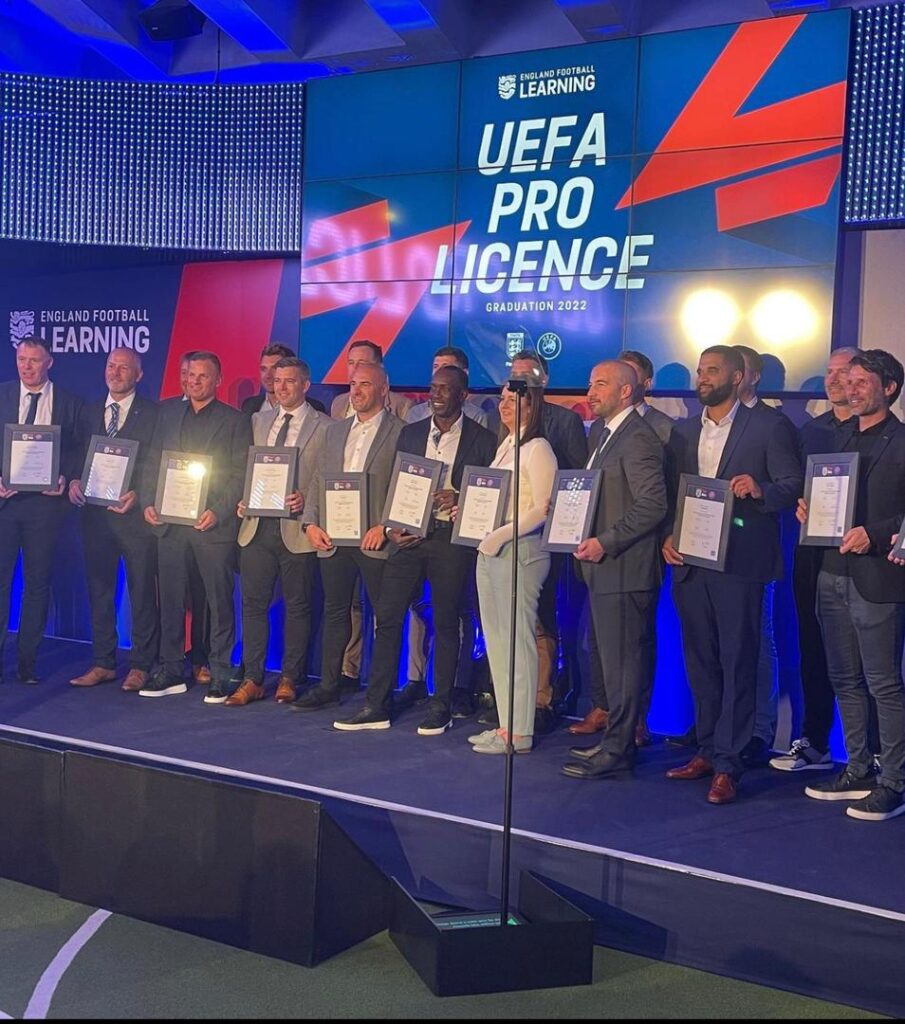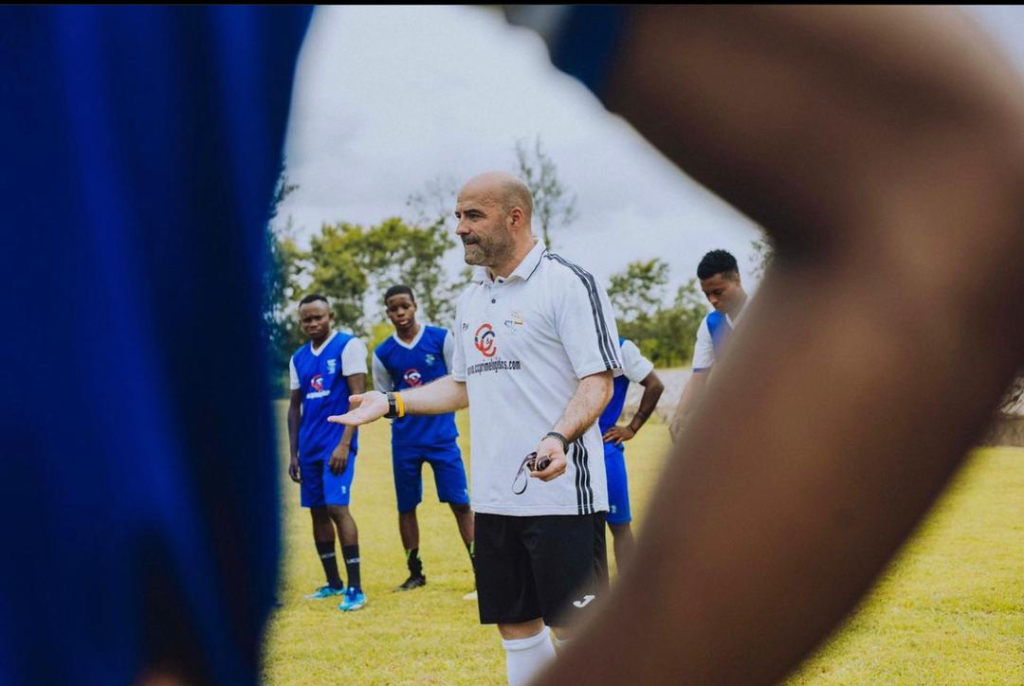Buy Professional Coaching Diploma
- Home
- Buy Professional Coaching Diploma

Earn a Soccer Professional Coaching Diploma / License from Home
A soccer coach designs and conducts training sessions to enhance players’ abilities in the game. They focus on developing players’ skills, motivation, and fitness, and they lead teams in competitive matches. Advance your coaching career and become a professional soccer coach by earning a coaching license online from home.
Based on experience and qualifications, soccer coaches can work with various age groups, from children to adults, in grassroots, amateur, semi-professional, or professional teams.
Steps to Becoming a Soccer Coach
How to Become a Soccer Coach
Note: The following information pertains to pathways offered by the English FA or UEFA. The courses and pathways may vary with different national associations.
To become a soccer coach, you need the appropriate qualifications. These range from basic coaching certifications for working with children or amateur players to advanced qualifications for coaching professional adult players. Typically, you must first complete lower-level courses, gain coaching experience, and gradually advance up the coaching hierarchy. Additionally, basic first aid and safeguarding courses are necessary.
Acquire Basic Qualifications:
- Begin with introductory courses to learn coaching fundamentals.
- Complete essential first aid and safeguarding training.
Gain Football Coaching Experience:
- Apply your knowledge by coaching at the grassroots or amateur level.
- Work with different age groups based on your qualifications.
Advance to Higher Qualifications:
- Enroll in advanced coaching courses as you gain more experience.
- Aim for certifications that enable you to coach semi-professional or professional teams.
Pursue Continuous Professional Development:
- Stay informed about the latest coaching techniques and trends.
- Attend workshops, seminars, and further courses to enhance your skills.

Path to the Top of the Coaching Pyramid: FA/UEFA Courses
Introduction to Coaching Football: A four-week, fully online course introducing the basics of football coaching. Completion of this course is not a prerequisite for subsequent courses.
UEFA C License (formerly FA Level 2): A 60-hour course providing a comprehensive introduction to coaching at the grassroots level. This is the first mandatory course for those aiming to progress further up the coaching pyramid.
UEFA B License (FA Level 3): A season-long course focused on age and ability-specific coaching techniques, helping coaches design practices tailored to their players’ needs and improve their technical, tactical, and physical abilities. Participants must be actively coaching a competitive team.
UEFA A License (FA Level 4): This course enhances technical and tactical coaching skills for 11-a-side football, preparing and leading teams into matches. It is designed for those working in or aspiring to work in the professional game, with priority given to full-time coaches in the senior professional game. Active coaching is required.
UEFA Pro License (FA Level 5): The highest coaching qualification, intended for those with experience in the professional game aiming to become head coaches of professional teams.
Additionally, there are specific qualifications for coaching futsal, goalkeeping, and youth football. Professional coaches often recommend these specializations as beneficial for development.
Academic qualifications in performance analysis, sports coaching, and sports science are also valuable, especially for entering the professional game, where the support staff around a manager or head coach has grown significantly.
Required Qualifications for Football Coaches
The necessary qualifications depend on the coaching level. Many grassroots or amateur youth teams may not require formal qualifications, although safeguarding and first aid courses are often preferred. The FA’s online Introduction to Coaching Football course is a good starting point. Higher coaching levels, both in age and ability, require more advanced qualifications.
Coaching Badges
“Coaching badges” is a common term for the above qualifications. They are available to anyone over the age of 16 who meets the prerequisites.
Skills Needed for Football Coaching
A good football coach needs strong people, communication, and leadership skills. Being personable, approachable, and able to build relationships with players is crucial. Organizational skills and attention to detail are also important.
Career Opportunities for Qualified Football Coaches
While coaching in the professional game is a common goal, there are part-time opportunities lower down the football pyramid. Paid positions are available at some semi-professional clubs, and there are numerous unpaid opportunities at the amateur level.
Coaches can also work in non-professional academies, holiday camps, or after-school clubs with children. With coaching qualifications, it is possible to transition into areas like sports psychology, talent identification, or goalkeeper coaching.
Working Hours for Football Coaches
Coaching hours vary by environment. Lower-level coaches often work evenings and weekends, as players are usually occupied with school, work, or university during the week. Some coaches work in schools, finding daytime employment. At the professional level, more “normal” working hours are possible, but evenings and weekends are still required for matches.
Salary of a Football Coach
Salaries for football coaches vary widely. At the grassroots level, many roles are voluntary. According to the National Careers Service, a full-time football coach can start at around £18,000 annually, with experienced coaches earning closer to £30,000. Professional coaches can earn significantly more, with Premier League managers earning millions.
Ready to take the next step in your coaching career?
Don’t miss out on the opportunity to earn your UEFA A Diploma and become a certified coach for top amateur or semi-professional leagues.
